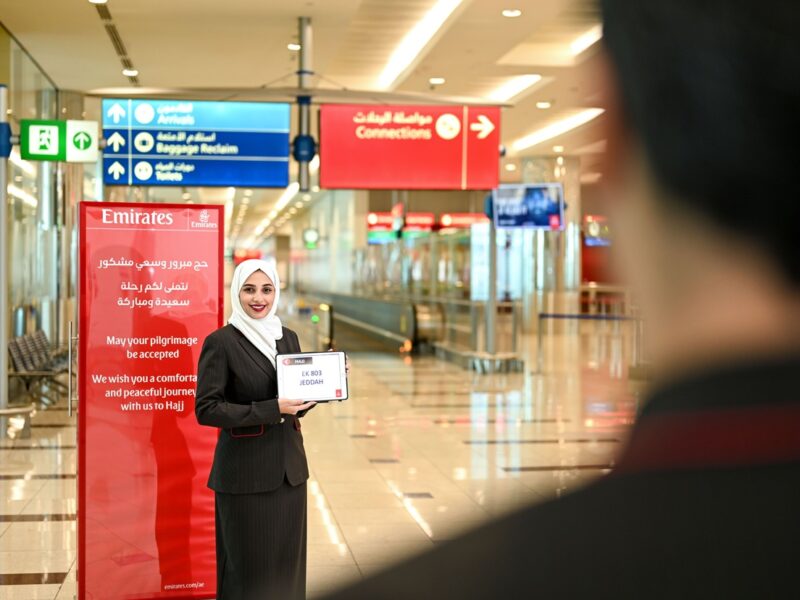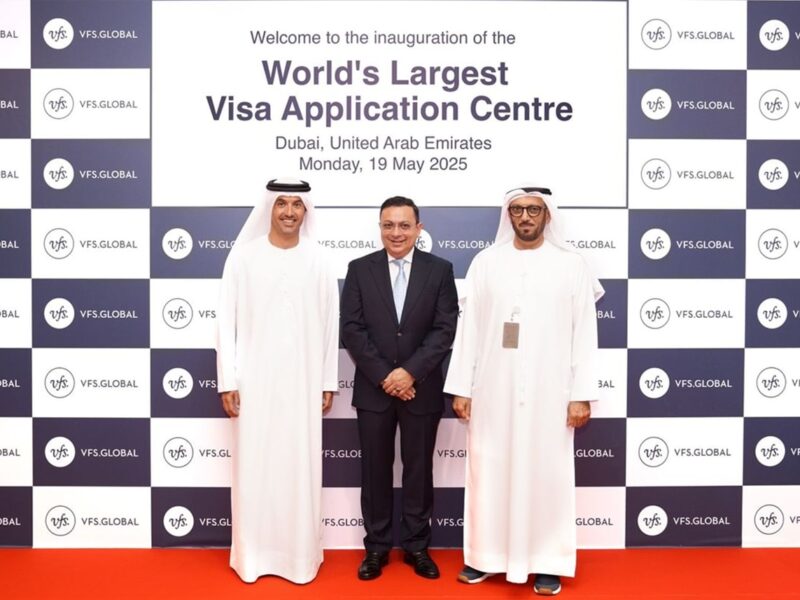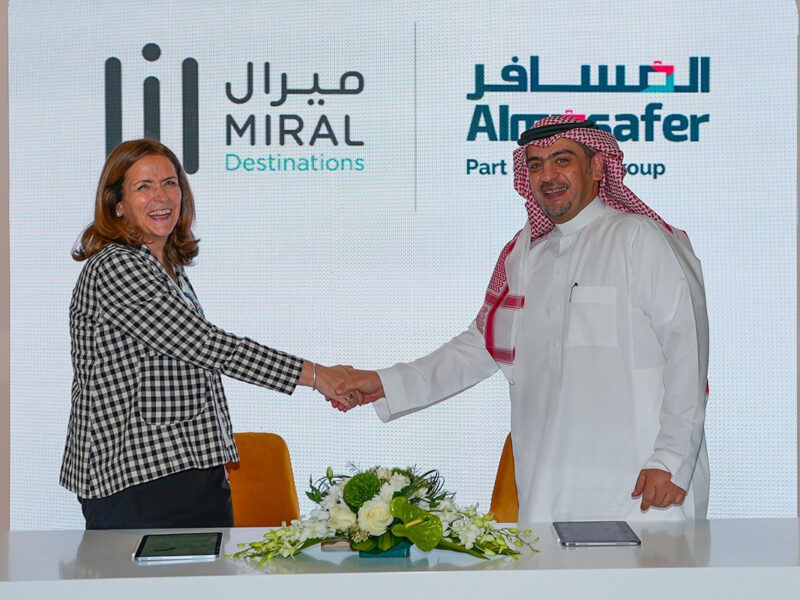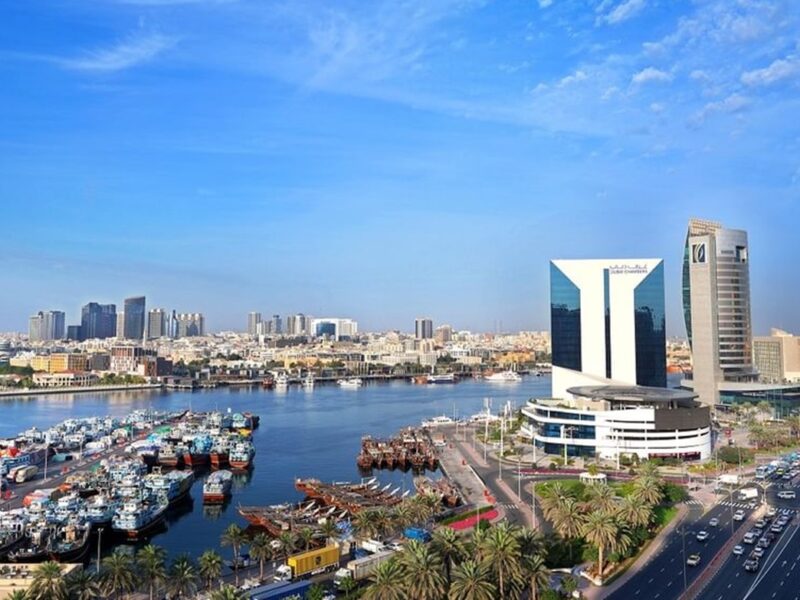With a thriving health and fitness industry already in place and internationally-branded theme parks, mega malls and luxury hotels on their way, Kuwait’s leisure industry is experiencing something of a renaissance, says Selina Denman.
While precise cultural parameters continue to guide the growth of Kuwait’s leisure industry, the country has not been immune to the development boom currently bulldozing its way through the rest of the region.
Massive multi-purpose projects are on the drawing board, large-scale malls are under construction, a host of new luxury hotels are on their way and Kuwait’s portfolio of attractions is receiving a much-needed boost.
The 99 Village will be one of the first theme parks to open in the Gulf, a couple of years ahead of Dubai.
Local themes
With rising oil prices spurring wealth generation, Kuwait continues to enjoy one of the highest per capita GDPs in the world. And with more than 50% of the population still under the age of 25, development of the country’s leisure industry is being driven by the need to entertain a young and increasingly wealthy society.
Extreme temperatures favour indoor entertainment options and a number of mega malls that combine retail, dining and entertainment facilities are being constructed in response.
Tamdeen Real Estate is behind two of the biggest projects in the pipeline – the 82,000m² 360° Kuwait, which is due for completion in 2009, and the Mall of Kuwait which, once complete, will feature 150,000m² of retail space. Tamdeen is also the name behind the mixed-use Madinat Al Fahaheel urban development.
Meanwhile, local real estate developer, Mabanee is continuing work on its four-phase, US $1 billion The Avenues, a shopping, leisure and business destination set to open in 2010. The development will eventually offer 140,000m² of retail space, including 10 cinemas, an entertainment complex, 39 restaurants, four-star hotels and a convention centre.
Kuwait’s traditionally stagnant amusement park industry is also experiencing a sudden growth spurt. A flurry of activity since the beginning of the year has resulted in the signing of two landmark agreements.
One, a joint venture between Cartoon Network and Future Kid & Real Estate Company, will see a 3500 m² indoor branded theme park operational in Kuwait City by the end of the year.
The second agreement complements efforts to create a culturally-sensitive brand of entertainment in Kuwait. The 99 Village will bring the Islam-inspired heroes of The 99 comic series to life, in a partnership between Teshkeel Media Group and United Entertainment & Tourism Company (UETC).
The 99 is the world’s first superhero series based on Islamic culture and features 99 characters whose powers reflect the traditional attributes of Allah, which include generosity, strength, wisdom, foresight and mercy.
“These are human values that we are not used to hearing about when Islam is described in the media,” explains Naif Al-Mutawa, CEO of Teshkeel Media and creator of The 99.
The 99 comics were launched in the Middle East two years ago and are now available in countries as far ranging as Indonesia, Malaysia and the US. A televised version of the series is currently under discussion in the US.
The 99 Village will be based at the site of an existing UETC amusement park in Jahra, which is to be totally rebranded.
“You’ll have the usual roller coasters and regular theme park rides but everything will be rebranded to relate to The 99,” explains Al-Mutawa.
The park will attract some 400,000 visitors per year. “Not the millions that Dubai talks of,” Al-Mutawa maintains. “Kuwait is not yet a tourism hot spot, and any theme park in the world relies on locals, so it is very important to have a local dimension.
It is all very experimental but we’re opening on October 1, so we’ll be one of the first theme parks in the Gulf, a couple of years ahead of Dubai. We’re a small operation, so we can think on our feet and move fast.”
Niche fitness
While Kuwait’s attractions industry may be in the early stages of development, the health and fitness sector is showing the first signs of maturity, says Frank van de Ven, vice president EMEA of Life Fitness, a global provider and manufacturer of fitness equipment. “You’ll find a couple of large-sized gyms in Kuwait, which can’t be matched in most parts of the world.
“Besides the performance-driven gyms, there are also beautiful-looking country clubs aimed at families. Of course, single sites, hotel gyms and other facilities can be found as well. With this level of segmentation, you can definitely see a developed fitness industry,” he says.
This high level of specialisation extends to female-only gyms. Express Fitness is the first circuit training gym in Kuwait and offers 30-minute training sessions to an exclusively female customer base.
The machines are in a circle and you can just jump in at any point. They are on all day so you don’t have to come at a certain time to catch a class. You just pop in whenever you can fit it into your schedule, so it’s really convenient for busy women,” says Celeste Snyder, co-founder of the gym.
Cultural sensibilities have made the female-only option popular with local ladies, but non-Muslim women are also more comfortable exercising in a single sex setting, Snyder has discovered.Even Kuwait’s younger generation has a fitness facility of its own. The Little Gym, an American franchise, made its Middle Eastern debut in Kuwait in 2003. “As a mother, I was looking for some organised sports activities for my kids,” explains gym director, Khaldah Al Ghanim. “I didn’t find anything close to what I wanted so I decided to do it myself.”
The facility uses curriculum-based gymnastics, movement and other programmes to develop co-ordination, balance, rhythm and flexibility in children aged between four months and 12 years old.
“The Little Gym is successful because of the concept. We love kids and we teach them to love themselves. There is no competition or comparisons between them. The Little Gym is not simply a sport or fun centre; it is a social, mental, and physical development centre,” says Al Ghanim.
You’ll find a couple of large-sized gyms in Kuwait, which can’t be matched in most parts of the world.
Kuwait can accommodate every market segment – and every budget, says Snyder. “Investors have really gone into the fitness sector in a big way so it’s possible to find small clubs like ours with low membership fees, to state-of-the-art family health clubs with shopping and entertainment facilities built in – but these come at a high price for those willing to pay,” she says.
Al Corniche Club sits at the high end of this spectrum, charging KWD 950 ($3581) per year for a single membership, along with a one-off KWD 300($1139) joining fee.
The club offers extensive exercise facilities, swimming pools, tennis and squash courts, private beach cabanas, a spa, a youth centre, private beach, restaurants and a function room. High demand for the club’s signature group fitness classes will see the opening of a fourth fitness studio later in the year.
The club currently has almost 3000 members on its books, with Kuwaiti nationals and western and Arab expatriates making up the mix.
“Our members are generally career high-flyers and their families. We have roughly equal numbers of male and female members and we maintain an emphasis on family,” says Yves Preissler, health and fitness manager, Al Corniche Club.
The trend for standalone facilities that combine health, fitness, spa and entertainment facilities seems to be gathering pace. The recently-launched Champions Fitness and Entertainment offers male and female spas, a running track, ice skating rink, indoor roller coaster and bowling centre. Boys can take karate, swimming and climbing classes, while girls can opt for ballet or swimming lessons.
While five-star hotels may no longer have the monopoly on luxury health and fitness facilities, they continue to see strong demand for their top-end offering.
“Our philosophy at the spa is to ‘put back a little of what life takes out’,” says Paul Ludkin, recreation and spa, club manager, Hilton Kuwait. “At the spa, new thermal facilities have been included, such as the ice room, rainforest showers and aromatherapy steamroom.
“A new spa menu was created, based on first-hand feedback from local and international clients. In addition, The Hilton Lifestyle Health Club has been upgraded to a 24-hour fitness facility,” he reveals.
With a number of new internationally-branded hotel chains coming on line in the next couple of years, the bar for hotel spas is set to be raised even further. Missoni Hotel Kuwait has been dubbed Kuwait’s first major lifestyle hotel and will be located at the Symphony Complex – a new hotel and shopping complex set on the waterfront. Also on the cards are a Four Seasons and the Hilton Olympia Kuwait.
Moving forward
While plenty of progress is being made, in order for Kuwait’s health and fitness industry to maintain its successful trajectory, greater awareness of the benefits of a healthy lifestyle need to be cultivated.
“Kuwaiti society is quickly becoming more health orientated but it still has one of the highest incidences of diabetes in the world,” Snyder points out. High levels of obesity are also common.
Government initiatives are underway but gender bias is an underlying problem.
“The government is investing in providing nice walking tracks in most neighborhoods and more and more people are taking advantage of those,” says Snyder.
“They have always had nice sports clubs for boys in Kuwait but facilities for girls and women are greatly lacking. The private sector steps in for female fitness but this is mainly for women -they really need to get more girls’ clubs open around the country.
Also, physical fitness classes for girls in Kuwaiti government schools are a joke. Many teachers don’t even bother to play games or exercise the girls.”
And there are logistical, as well as ideological, issues to contend with. Snyder and Al Ghanim cite government regulations as one of the key challenges that both had to face when establishing their clubs.
“It was hard to get started due to government regulations on size and zoning laws,” Snyder reveals.
“I don’t understand why it’s okay to have a day care centre in a residential neighbourhood but you can’t have a small fitness centre in an accessible location near to where people live. I would like to see some flexibility on those issues,” she maintains.
“Everything takes a lot of time and effort,” Al Ghanim agrees. “But then again, this industry is still young.








